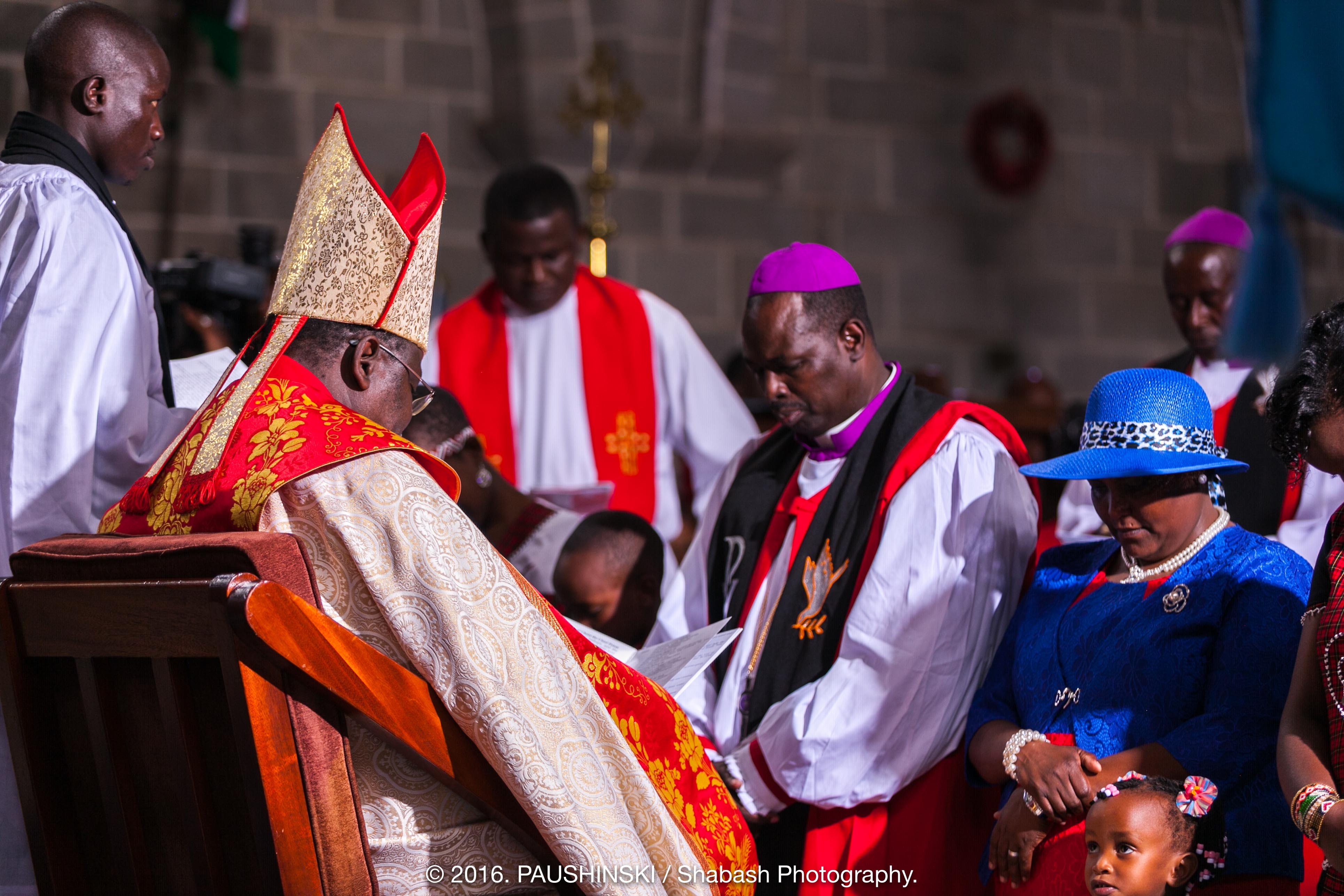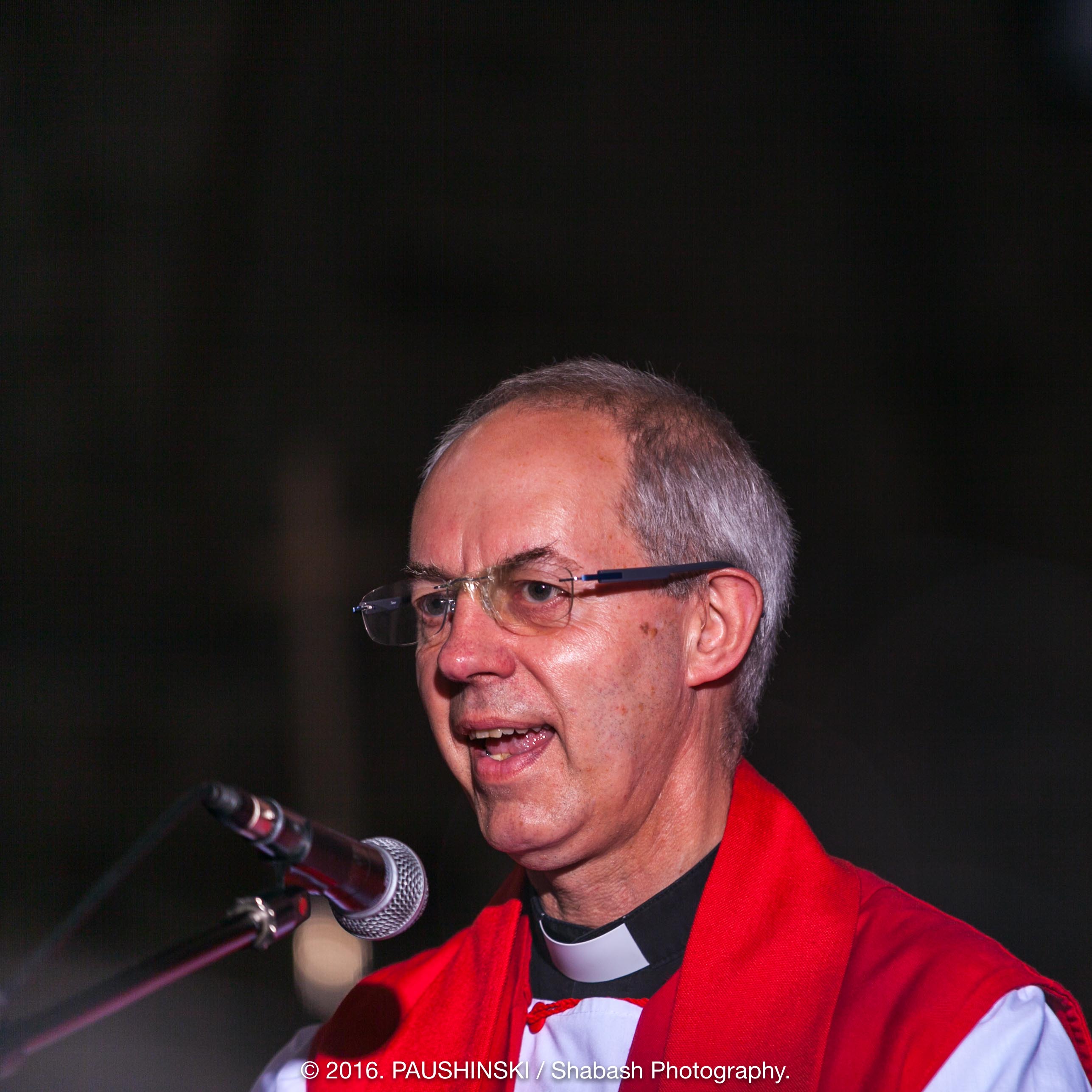By Canon Francis Omondi
“May Thy Kingdom come, O Lord ! ”
It would be difficult for anyone looking at Anglican Church of Kenya today to resist the conclusion that something has gone very badly with her. She is pale, not that imposing church in the communion and country she was.
This awareness tends to be distorted and muffled – if not obliterated – by our capacity and traditions. Consequently we have been induced to take for granted the continuingly explosive situations that confront us on every side.

The change-of-guard this year was so welcome, a pointer to a change of course.
Archbishop Jackson Ole Sapit was not widely known before his election. Our curiosity of who he is or what he will become, did not deem our enthusiasm of getting a new archbishop nor the brilliance of his enthronement.
What a unique event this was! The cathedral full of worshipers in the famous red Maasai clad and the Maasai chant during the service signalled fresh, new and a different face of the Anglican Church of Kenya.
We now have a Maasai Archbishop!

Archbishop ole Sapit has stepped into the confusing muddle and conveniently ambiguous position of the ACK in Anglican communion divide.
Of interest, was whether he will continue his predecessor Archbishop Eliud Wabukala’s “walk away…” policy: undermining Canterbury’s effort to bridge the divide within the communion on one hand and the diminishing ACK’s influence on the other. Will he navigate this sea differently?
Kenya’s participation in the last Anglican Consultative Council ACC-16 meeting in Lusaka Zambia, exposed tensions uncharacteristic of ACK. There had been an oscillating position between supporting the conservative Anglicans as represented by GAFCON, whose leaders called for a boycott of the ACC and the efforts of the Archbishop of Canterbury to unify the Anglican Church by brining to the table of fellowship the ECUS, representing the face of the liberals.
The communion met at this enthronement.
The involvement and presence of primates from the GAFCON provinces: Uganda, Nigeria, Rwanda, Diocese of Sydney, Southern Cone and ACNA, was indicative of the influence ACK, not only as a founding member, but an important part of the GAFCON network.
In this, the new archbishop indicated his intended continued involvement with the conservative Anglicans.
Intriguing was the unexpected embrace and the involvement of other primates from the communion not involved in GAFCON: Burundi, the Indian Ocean and Tanzania, who was the preacher.

The prominent presence of the Archbishop of Canterbury, and the warmth with which he was received together with the General Secratary of the ACO Archbishop Josiah Feron, left no doubt that Kenya will firmly support the Anglican Communion and will play a role in uniting the church.
In a recent interview, Archbishop Sapit argued, “there is strength and power in Unity. If we are united we could shape the agenda of the world. And this is on the account of worldwide communion.”
He perceives that the church must position itself to shape the destiny of the world and making the world a better place for the future generation. We may not achieve this if we do not use our advantage of strength in numbers.
Archbishop Sapit contends that unity alone will not be enough to usher the kind of transformation our world needs. He states that, “for the Church to remain true to her calling, she must be a credible witness to a broken world.
He continues “how we appear on the outside should reflect what we are on the inside. This is integrity.”
“Issues of our morality should stand out to make the world look up to us. Our lives must bear the scrutiny of scripture”, he insists.
His message to the rest of the Communion and more so the liberal leaning is: “let’s uphold our teachings as found in the scripture.”
Archbishop Sapit begins his service in a country easily divided on tribal lines. This problem has also plagued the church since the succession of our first archbishop, Festo Olang’.
We are now asking, will Archbishop Sapit be the one to exorcise the spell of political tribalism in the ACK?
Archbishop Jackson brings an unusual gift in his leadership to the ACK.
Elected from the Masai, a minority ethnic group yet supported by all regions, he is well positioned to extinguish the embers of tribalism. His success here, may serve as an invaluable example to the nation of Kenya now heading for a tense national election in 2017.
Archbishop Sapit feels strongly that his role as the head of the church will be a uniting one: in the church and country.
Evangelization is clearly very important to the archbishop. But his goals may not be achieved if the challenges of tribal division in the ACK is not adequately addressed.
He recognises the negative ills of tribal political division in the country and its effects on the church, and is prepared to face it.
He made this an issue in his enthronement Charge saying,
” …the only threats to this progressive vision are the disruptions to peace that come up with every electioneering cycle, corruption, unhealthy competition to ascend to power and the attendant stoking up of negative ethnicity – the cancer of modern-day Kenya.”
In his role as the chairman of National Council of Churches Kenya’s South Rift, Archbishop Sapit was brilliant in dealing with such conflicts. His leadership was sought for, beyond the church, in settling notorious governance and social wrangles in Narok County. He sought to promote peaceful coexistence of all communities often at war. “Peace is not absence of war or conflicts” he says, “for ‘my’ peace to be complete, it must be the peace of my neighbour also”.
The irrefutable source of conflict among our communities, is resources. Particularly how this is distributed or shared.
To make peace happen, the archbishop outlines:
“Our Goal should be equitable distribution of resources. We must ensure everyone’s basic needs are met and no one goes hungry.”
For this reason he lays out the duality of his mission as: ‘both spiritual and social’.
“We aim at social transformation as was represent in the ministry of Jesus. Jesus not only taught but ministered to all aspects of life of those he met”.
One can easily see from this, why Archbishop Sapit has set out a clear agenda for social development.
” On the one hand is pastoral ministry, which consists of preaching, teaching, healing, prayer, pastoral care, worship and evangelism. On the other hand is the ministry of social transformation, which addresses matters such as physical health, food security, quality of living conditions, peaceful co-existence, justice, provision of quality education, stewardship, and justice in the care of the environment”, as emphasised in his charge.

In the heart of crises without and challenges within, we can anticipate changes in how we are led. Change is here!
Canon Francis Omondi Clergy of All Saints Cathedral Diocese Nairobi.


Ahmed Mathey
I am a Christian Somali Young man living in Nairobi Kenya. Would want to know more of the waanglicana. God bless you
Fr Enoch Opuka
Ahmed Mathey if you are facebook I could inbox you my number. I am an Anglican priest